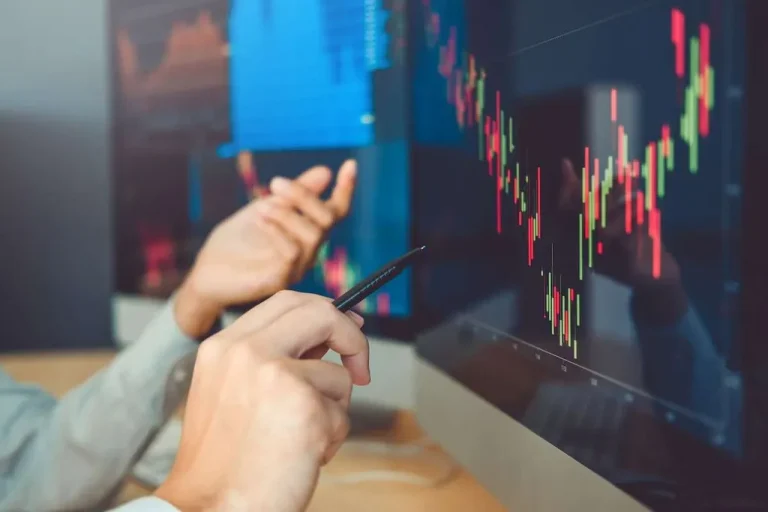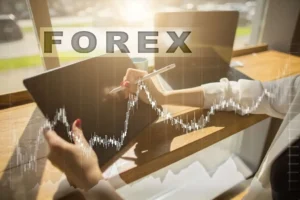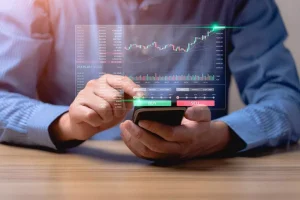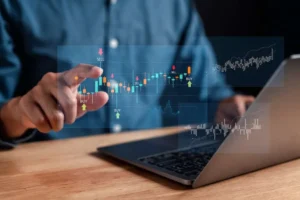Institutional traders shape the competitive landscape of global finance. Their dominance is evident in markets like Forex, where they hold a substantial 70% share compared to the modest 5.5% held by retail investors. This significant disparity underscores the profound influence wielded by institutional crypto trading firms within the financial system. Today, we’ll explore institutional trading in greater detail.
What is Institutional Trading?
Institutional trading occurs when institutions buy and sell financial instruments through appointed professionals. This process is relevant both to capital and to shares and options. Large corporations usually use the services of professional groups of investors. These experts meticulously conduct technical and fundamental analyses. At the same time, traders carefully study the information. They do everything possible to implement the most profitable strategies. The significant capital invested by institutional traders helps diversify investments, reducing potential losses significantly.
Moreover, such trades have a large volume, which gives experts a chance to compete for better prices. Sometimes, someone may even get a chance to contribute to the valuation of assets. These market players constantly battle to dominate the market and manipulate the trends, highlighting the significant effect of large-scale professional trading on share prices.
However, how can such influence be exercised? First, the investors use tactics similar to retail traders. They may open long positions if they expect the market to rise.
Such trading involves various methodologies. Here, you can see algorithmic and high frequency trading (HFT), as well as block transactions. Algorithmic trading one uses computer programs to execute transactions based on predetermined parameters and algorithms. HFT, conversely, uses advanced tech to analyze market data in real-time and execute trades on a millisecond scale. Finally, block trading makes it easier to buy or sell large quantities of securities in a single transaction. It’s beneficial for institutions seeking to minimize market price exposure during large trades.
It is also important that such experts have access to “dark pools“. These are private exchanges that facilitate the anonymous execution of large transactions. Anonymity attracts market players because it has many benefits. First, large public exchange orders trigger unfavorable price changes to the institution. But with dark pools, they place their orders anonymously. It mitigates the overall price impact. The exchanges protect their trading strategies from competitors. However, this is not without problems — the inherent lack of transparency raises concerns about potential manipulations.


Turnkey Brokerage Solution For Your Business
Get the most profitable fully licensed fx/crypto brokerage software or ready-to-operate business in 48 hours. Best-in-class web & mobile trading platforms, sales-driven CRM, full integration with MT4/5, and 150+ payment providers.
Types of Institutional Traders
There are many kinds of experts in the large-scale financial management process. Let’s touch on the main types.
Hedge funds
The funds operate with significant management autonomy — it gives them freedom in choosing assets. Moreover, the flexibility allows them to apply complex strategies and use derivatives. The primary objective is to maximize profits in both rising and falling markets potentially. Also, such institutions tend to use hedging methods. They include simultaneous purchasing and selling of correlated instruments.
Mutual or investment fund managers
These entities pool capital from various individual and collective stakeholders to invest in diversified asset portfolios. They offer a key advantage: access to a wider scope of assets under more favorable terms. Unlike hedge funds with their independent managers, a dedicated company oversees these funds. Pre-defined investment portfolio management is their major task.
Also, the funds are simple and affordable, which makes them a good choice among retail investors. This is where such experts get professionally managed diversification at a lower investment threshold. Ultimately, together with funds, retail traders open a path to indirect institutional trading.
Pension fund managers
They combine the contributions of customers registered in pension savings plans. The goal is to receive income that will eventually supplement the clients’ pensions. In addition, pension funds cater specifically to those who are saving to retire. The designated governing body oversees investment decisions within these funds – they determine asset allocation strategies and execution timelines.
Investment banks
They function as facilitators within the financial system and deliver advisory services for market-driven transactions. The services encompass:
- initial public offering (IPO)
- subscriptions,
- mergers
- corporate restructurings
In some situations, they may also act as middlemen. Prominent examples are JPMorgan and Morgan Stanley. While not directly engaged in traditional trading activities, investment banks play a crucial role within the institutional trading landscape due to their influence on capital markets and deal flow.

Institutional Trading vs Retail Trading – Differences
The power of institutional traders within global finance is undeniable. However, the retail trader vs institutional trader operational landscape diverges significantly. Let’s explore some fundamental differences.
Investment goals
Institutional investors often prioritize long-range objectives. Their strategies align with specific mandates and emphasize capital preservation and steady growth. In contrast, retail traders pursue a broader spectrum of goals. They might encompass short-term profit generation or accumulating financial assets for retirement.
Time horizons
Institutional trading adopts a long-term perspective. The entities hold assets for extended periods, sometimes years or even decades. It allows them to capitalize on long-term market cycles and trends. Conversely, retail traders tend to engage in shorter-term trades, often reacting to immediate market news.
Risk management
Institutional trading prioritizes robust risk management frameworks. It can be diversification across asset classes, hedging strategies, and advanced analytics. On the other hand, retail traders may lack such formalized practices. It can expose them to greater risk due to emotional biases or a deficit in experience.
Information asymmetry
Information asymmetry creates a significant power imbalance between these two types of investors. The former possesses access to extensive datasets, proprietary research conducted by dedicated in-house analyst teams, and expert insights that provide a deeper understanding of market movements. Retail traders primarily rely on publicly available information. It can constrain their ability to analyze complex data and identify subtle market signals.
Strategic disparity
Institutional investors utilize a diverse strategy kit. It encompasses fundamental analysis to assess a company’s financial health and quantitative models for data-driven trading decisions. Retail traders may focus on specific techniques like technical analysis or popular investment trends. However, their strategies often lack the same level of diversification and sophistication.
Institutional Trading – Advantages and Disadvantages
Institutional traders offer several perks that can level the playing field for retail investors. First, they have a large fund of capital. It makes for great diversification, potentially leading to higher returns. Moreover, their activity is based on sophisticated technology. One example of this could be direct market access (DMA) to interact directly with an exchange’s order books. They also use order management systems (OMS) for efficient execution across exchanges and asset classes.
In addition, such traders benefit from lower trading fees, access to advanced technology, and exclusive data sources.
However, it’s vital to keep in mind some downsides to the process. Strict regulations can limit investment options. It directly hinders their flexibility. In addition, the sheer size of their positions can limit their agility in adapting to market changes. While advances like contracts for difference (CFDs) have narrowed the dividing line between institutional and retail traders, certain markets and strategies remain inaccessible to small-scale investors.
Conclusion
Institutional trading is vast, intricate, and undeniably captivating. It presents a sophisticated suite of institutional trading tools specifically tailored to the demands of industry giants. Though retail investors operate on a distinct scale, comprehending the nuances of institutional trading grants valuable insights into the broader market’s machinations.
In essence, institutional trading forms the very background of financial markets. The experience of these experts gives them a unique ability to analyze trends and make effective decisions. The impact goes beyond simply affecting stock prices. Institutional investors can influence corporate governance and even market liquidity.
While retail investors may face challenges due to the mismatch, strategies such as portfolio diversification and index funds can help bridge the gap. Regardless of your trading status, understanding the dynamics of institutional trading enables you to make informed investment decisions.






